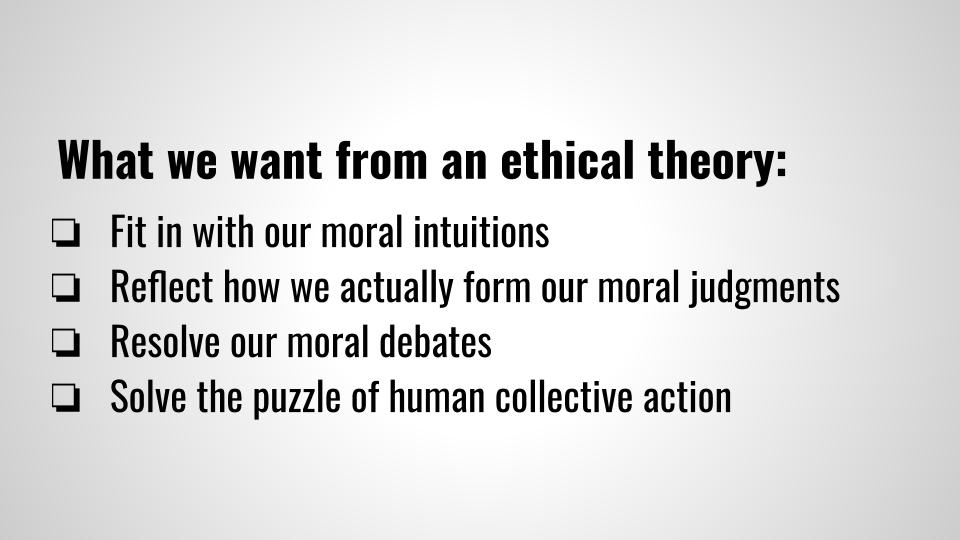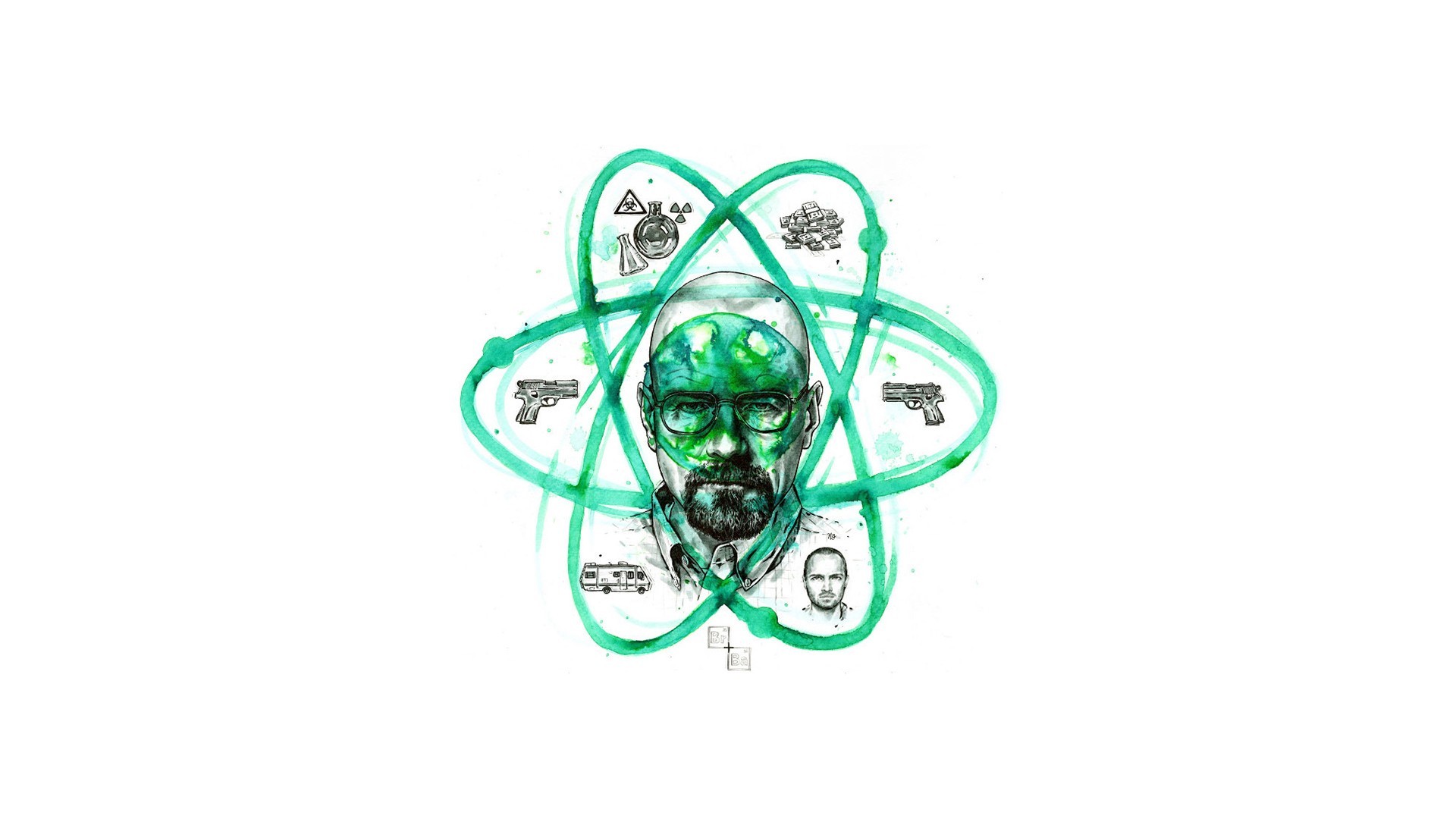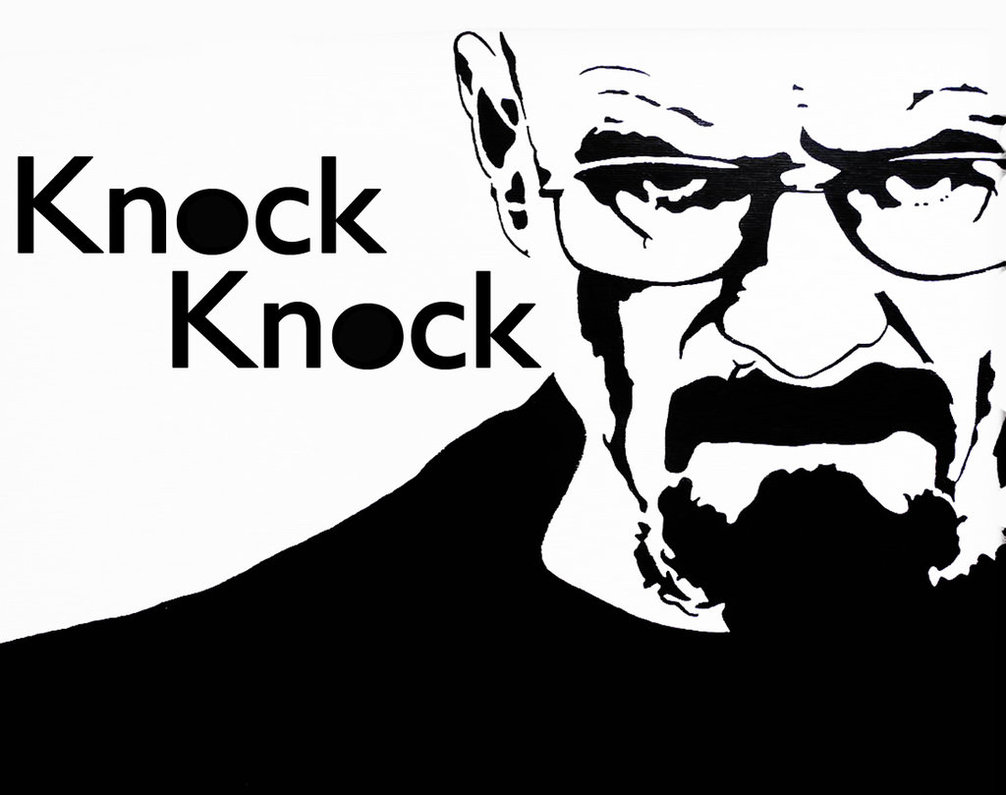The Mind's I

“A man always has two reasons for what he does—
a good one and the real one.”
~J. P. Morgan
The Afflicted City
We begin our survey of ethical theories—or as I'll sometimes call them moral discourses—in more or less the order in which they appeared historically, sort of. The thing about some moral discourses is that they tend to come in and out of fashion, as you'll see in this lesson. Although we'll be covering more modern versions of them, the inspiration for the two theories we are covering today is ancient. This is because thinkers far back in the Western tradition have been thinking about why we behave in the way we do, why we build big cities, build empires; why we sometimes work together and at other times slaughter each other. We know that Western thinkers had theories about this because the works of some very important thinkers have survived to tell us about them. One such thinker is Plato (circa 425 to 348 BCE).
Plato wrote primarily in dialogue form. Typically his dialogues would take the form of an at least partly fictionalized dialogue between some ancient thinker and Plato's very famous teacher, Socrates. In Plato's masterwork Republic, the character of Socrates attempts to define justice while responding to the various objections of other characters, which expressed views that were likely held by some thinkers of Plato's time. In effect, this might be Plato's way of defending his view against competing views of the time, although there is some debate about this.
Barley bread.
In the dialogue, after some initial debate, the characters decide to build a hypothetical city, a city of words, so that during the building process they can study where and when justice comes into play. At first they build a small, healthy city. Everyone played their own role which served others. There was a housebuilder, a farmer, a leather worker, and a weaver so that they could have all the essentials. At this point, a character named Glaucon objected to the project. He argued that this is not a real city but it's a "city of pigs", a city where people would be satisfied with the bare minimum. A real city, with real people, would want luxuries and entertainment, and they would be dissatisfied with eating barley bread as their primary source of sustenance. So, at Glaucon's behest, the characters expanded the city to give its inhabitants the luxuries they likely wanted. Soon after, the characters realized the city would have to make war on its neighbors; they would need an army and they would need rulers.
Ground Rules
The way in which Plato's story proceeds after this point won't be covered here.1 Suffice it to say that Republic is one of the most influential documents in the history of political philosophy—and the story doesn't at all go in the direction you might think it does. In any case, what is relevant to us is the view endorsed by Glaucon, which we will take a closer look at in a moment. Before we do so, however, it is important to have ground rules for assessing ethical theories. I've made a checklist of some basic desiderata, i.e., things that we want, from an ethical theory. Let's review it briefly.

Ethical Theory Checklist
First off, we'd like an ethical theory that fits in with our moral intuitions. We don't want an ethical theory that mysteriously suggests that murder is ok. That would be a huge red flag. Next, we want an ethical theory that explains how we actually form moral judgments. If, for example, an ethical theory claims that we make our moral judgments by flipping a coin, then we know that ethical theory isn't very strong. Sure, maybe some people have done this, but making moral decisions seems to be more deliberate than that; it seems like we are usually very conflicted about how to proceed and wouldn't be satisfied by the outcome of a coin toss. Next, ideally we want an ethical theory that can resolve our moral debates. For example, some people think that capital punishment is morally abhorrent, while others think it is the proper thing for a society to do, to punish those who break its most fundamental laws. We'd like a theory that convincingly shows that one of these positions is right and the other is wrong. Lastly, we hope that the theory in question will help us shed light on how and why civilizational complexity has increased in the way that it has.

Important Concepts+
Glaucon's Challenge
Picking up where we left off, the characters in Plato's dialogue Republic begin to discuss how a luxurious city, one in which citizens would enjoy delicacies and splendor, would come into being. The need for this arose from what I will call Glaucon's challenge, a challenge I'm not sure Socrates ever satisfactorily responded to. The challenge has to do with the question of who is happier: the perfectly just person or the perfectly unjust person. In other words, Glaucon wants to know if it is better to be good or bad. He suggests that it might be better to be perfectly unjust, and he uses the story of the ring of Gyges to show just how advantageous being bad can be. In this story, a man comes into the possession of a ring which makes him invisible, and before long he has usurped a king and taken over his kingdom. Glaucon's challenge is this: show me that I'm wrong, show me that it is better to be just.
It is important to note that the sort of answer that Socrates, Glaucon and the others were looking for might not be what you would be looking for in a more modern context. MacIntyre (2003, chapter 8) draws a basic distinction between Greek ethics and modern ethics: Greek ethics is concerned with the question, “What am I to do if I am to fare well?” Modern ethics is concerned with the question, “What ought I to do if I’m to do right?” In other words, for the Greeks, being good and being happy where either the same thing or at least siblings. For many of us, though, doing good is not always what will make us happiest.

The Death of Patroclus.
To supplement this point, consider the history of the Greek word agathos, which is the ancestor of our word good. In Homeric times, the word was used to describe noblemen who were successful in battle and in ruling. It also implied that they had the wealth and status to be able to train so that they can be successful in battle and in ruling. These were the highest aim of a Greek. The attribution of agathos to others is inextricably linked to the descriptive: success in battle, wealth, etc. Notice, though, that these are not our highest aims now—at least for most of us, I think. For us, doing right thing is often very far from what is most personally advantageous. And so, what the Greeks meant by good is fairly distant from what most of us mean by it.
With this context in place, you can see that Socrates had his work cut out for him. Could he convince Glaucon that being just is better than being unjust? Well, as I've said, you'll have to read Republic on your own to find out. For our purposes, there are just a few things to note. First off, Glaucon seems to be assuming that pleasure is the only intrinsic good and that it would be rational to maximize our own pleasure. Moreover, he adds an important psychological insight—one that modern science has confirmed (Tversky and Kahneman 1991). It is this: we feel the bad more than the good. In psychological jargon, this is called loss aversion. Out of these assumptions, Glaucon builds his theory. Maybe we only band together to avoid even worse suffering. Maybe a long time ago we just agreed to not commit injustices against each other because that would be, on balance, better than constantly being at risk of having injustice committed against you. We came to the realization that it is better to live and let live than to always have to be on guard against others. This is Glaucon's case against justice: justice isn't an intrinsic good; it's just the best we can do.
“Hence, those who have done and suffered injustice and who have tasted both—the ones who lack the power to do it and avoid suffering it—decide that it is profitable to come to an agreement with each other neither to do injustice nor to suffer it. As a result, they begin to make laws and covenants; and what the law commands, they call lawful and just. That, they say, is the origin and very being of justice. It is in between the best and the worst. The best is to do injustice without paying the penalty; the worst is to suffer it without being able to take revenge. Justice is in the middle between these two extremes. People love it, not because it is a good thing, but because they are too weak to do injustice with impunity” (Republic, 359a).

Sidebar
Hobbes' Leviathan
As I mentioned in the Sidebar, moral discourses tend to go in and out of fashion. Just as Glaucon gave an account of justice that was based on a social contract, nearly two thousand years later, Thomas Hobbes (1588-1679) would arrive at much the same conclusion.
Hobbes, like other philosophers of the period, had an interesting profession: a sort of live-in scholar for noblemen. The role left little time for marriage and family life, as is the case with both Hobbes and Locke, but allowed for intellectual and philosophical pursuits. Hobbes, in his role as servant to his first employer William Lord Cavendish, entailed functioning as a secretary, tutor, financial agent, and general advisor.
Hobbes' views on ethics/politics will seem very similar to the views of Glaucon, if Glaucon indeed held these views. They both assume hedonism and psychological egoism is true, and they claim that prosocial behavior is merely a state of affairs we submit to purely out of self-interest. Morality, they say, is convenient fiction. In short, we submit to an authority and give it a monopoly on violence because the alternative, the state of nature where everyone is at war with each other, is substantially worse. But remember: justice and morality are mere social contracts; if society collapses, you can feel free to ignore these contracts. We'll call this view social contract theory, or SCT for short.
“Hereby it is manifest that during the time men live without a common power to keep them all in awe, they are in that condition which is called war; and such a war as is of every man against every man... In such condition there is no place for industry, because the fruit thereof is uncertain: and consequently no culture of the earth; no navigation, nor use of the commodities that may be imported by sea; no commodious building; no instruments of moving and removing such things as require much force; no knowledge of the face of the earth; no account of time; no arts; no letters; no society; and which is worst of all, continual fear, and danger of violent death; and the life of man, solitary, poor, nasty, brutish, and short” (Thomas Hobbes, Leviathan, i. xiii. 9)
Hobbes and SCT
Is Hobbes' right? Certainly we have seen unthinkable acts of violence and theft when there is a breakdown in central authority. From the LA Riots in 1992 to involuntary euthanasia during the Hurricane Katrina disaster, and even more recently during the looting after the George Floyd protests.2 We will give a more careful assessment of SCT in the next lesson, but for now I want you to think about how the breakdown of central of authority is at least correlated with some instances of immorality and blatant disregard for the law. But Hobbes' theory mostly rests on one biological trait: psychological egoism. Is it truly the case that all human actions are driven by self-interest?
Food for Thought...


Ethical egoism
So our first theory, SCT, is based primarily upon the assumptions of hedonism and psychological egoism. Both have been challenged and we will look at those objections. However, before moving on to that, I'd like to introduce you to a close cousin of Hobbes' SCT: ethical egoism. Ethical egoism makes the same starting assumptions as Hobbes, but it is—perhaps we can say—less ambitious. It does not seek to explain how societies coalesce, or how the laws could stabilize social order, or any of Hobbes' more grandiose claims. Ethical egoism is much simpler: an action is right if, and only if, it is in the best interest of the agent performing the action. Here is a simple argument for the view.
- If the only way humans are able to behave is out of self-interest, then that should be our only moral standard.
- All human actions are done purely out of self-interest, even when we think we are behaving selflessly (psychological egoism).
- Therefore, our moral standard should be that all humans should behave purely out of self-interest.

Mandeville's
The Fable of the Bees.
In a nutshell, this argument states that if all we can do is behave in a self-interested way, that’s all we should do. Premise 1 seems reasonable enough. A thinker that we will come to know eventually, Immanuel Kant, argued that if we should do something then that implies that we can do it. Although Kant did not believe in psychological egoism, we can accept his dictum that we should be able to do what we are required do. This implies that if we can't help but to act in a self-interested way, then that's the only rational standard we should be held against.

Ayn Rand.
If it were up to me, I wouldn't even bother covering ethical egoism (EE for short). Hobbes' SCT almost seems to 'contain' EE, but is much better argued for. But I cover the view for two reasons. One is that, like SCT, this type of moral discourse has cropped up in history multiple times. In the early 18th century, for example, Bernard Mandeville advocated something very much like this view in his 1714 The Fable of the Bees. Then, in the 20th century, novelist and philosopher Ayn Rand endorsed greed as being good—a sentiment that is very much in line with ethical egoism.3
In any case, the proponents of ethical egoism argue that psychological egoism can explain all human actions. We can admit at least that it does seem to account for many of our behaviors. For one, sometimes people are selfish. Sometimes, however, people cooperate and behave in a seemingly altruistic way, which is to say for the benefit of others. Egoists claim their view can also account for this sort of behavior because it’s possible people behave this way only to: get the benefits of working cooperatively, or enjoy moral praise (from themselves and others), or just avoid feeling guilt. Let's be honest, some of you don't lie or steal simply because you couldn't bare the guilt.
Does ethical egoism meet our desiderata? Well it might fit with some of our moral intuitions. Most of us think that murder is wrong. An ethical egoist might agree given that the chances of being caught are pretty good, and being caught for murder is definitely not in our best interest. Does it reflect how we form our moral judgments? Maybe for some of us, but it's hard to say definitively that every one reasons in this way about moral matters. The egoist can push back, though. They might argue that even Mother Teresa acted in a self-interested way. After all, if her faith was well-placed, she did get a reward for her life's work: eternal bliss in heaven. Does it resolve our moral debates? Hardly. This is a definite setback for ethical egoism. Lastly, does it solve the puzzle of human collective action? Not really. It doesn't even address it.
And so we have our first two ethical theories: Hobbes' social contract theory and ethical egoism. I think you should begin to associate the views with the name of the relevant thinker, so try to think of Hobbes when I discuss SCT from now on. As for EE, you can either think of Mandeville or Rand, but, to be honest, I always think of the lead character from the show Breaking Bad, Walter White. SPOILER ALERT: Early on, he said he did it for his family. But anyone that got to the end of the series knows the truth: he did it for himself. And this brings me to the second reason why, despite my better judgment, I do indeed cover EE: some of you actually like the view.


The ethical theories covered today took as their starting point two assumptions. Hedonism is the view that pleasure is the only intrinsic good. In other words, a hedonist believes both that good is equivalent to pleasure and that there is no other thing that qualifies as good for its own sake. Psychological egoism is the view that all human actions are rooted in self-interest.
Thomas Hobbes, sounding very much like Glaucon in Plato's Republic, argued that all prosocial behavior is merely a state of affairs we submit to purely out of self-interest. In his social contract theory, morality is merley a convenient fiction. In short, we submit to an authority and give it a monopoly on violence because the alternative, the state of nature where everyone is at war with each other, is substantially worse.
Reflecting on Hobbes' theory for how we form moral judgments is illuminating. For Hobbes, moral judgments are formed by our feelings and emotions, which are themselves influenced by self-interest. Since the self-interest of individuals will drive them towards conflict with each other sooner rather than later, Hobbes suggests that a set of stabilizing laws—a sort of fictional but useful morality—be established so as to avert catastrophe.
Ethical egoism, flavors of hich seemed to be advocated by Bernard Mandeville and Ayn Rand, is simply the view that act is right if, and only if, it is in the best interest of the person doing the action. Under this way of thinking, many thing are technically morally permissible, including stealing if you can get away with it and helping others all your life so you can get into heaven.
FYI
Suggested Reading: Plato, The Republic, Book II
-
Note: Read from 357a to 367e.
TL;DR: The School of Life, POLITICAL THEORY: Thomas Hobbes
Supplemental Material—
- Video: Peter Millican, Introduction to Thomas Hobbes
Advanced Material—
-
Reading: Stanford Encyclopedia of Philosophy, Entry on Egoism, Sections 1 & 2
-
Reading: Thomas Hobbes, On the Social Contract
-
Reading: Plato, The Republic, Book IX
-
Book: James Coleman, Foundations of Social Theory
-
Note: This is a more modern treatment of what is now dubbed “rational choice theory.”
-
Footnotes
1. I cover Plato's Republic in some detail in my PHIL 105: Critical Thinking and Discourse.
2. I recommend the documentary LA 92 on the social injustice and unrest leading up to the LA riots.
3. Rand is most known for her novels, Atlas Shrugged and The Fountainhead. She called her ethical theory objectivism; however, we are using this label for another theory later on. What she meant by objectivism was that our lives are governed by some central pursuit, i.e., some objective. We will be using the label, however, to denote the view that moral terms are objective and mind-independent, i.e., existing independent of humans.

